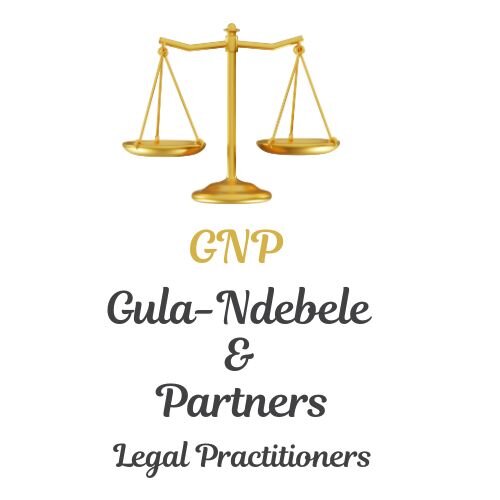Best Hiring & Firing Lawyers in Bulawayo
Share your needs with us, get contacted by law firms.
Free. Takes 2 min.
List of the best lawyers in Bulawayo, Zimbabwe
About Hiring & Firing Law in Bulawayo, Zimbabwe
Hiring and firing, also known as recruitment and dismissal, are important areas of employment law in Bulawayo, Zimbabwe. The legal process involves the rules and regulations governing how employers hire new staff, manage employment relationships, and terminate employees. Both employers and employees are protected through labor laws to ensure fairness, transparency, and due process in the workplace. Understanding these laws is crucial for creating a positive work environment and avoiding legal disputes.
Why You May Need a Lawyer
There are many situations where individuals and companies may require legal help with hiring or firing matters in Bulawayo:
- Clarifying employment contracts and obligations before hiring or dismissing staff
- Understanding correct procedures for disciplinary action or retrenchment
- Defending or pursuing unfair dismissal claims
- Advising on redundancy and severance packages
- Ensuring compliance with Zimbabwean labor laws
- Negotiating settlements between employer and employee
- Representing clients in the Labour Court
- Preventing workplace discrimination and harassment claims
- Guiding on specific issues such as constructive dismissal or summary dismissal
- Resolving wage, salary, and benefits disputes
Early legal advice can save time, minimize risk, and help maintain productive workplace relationships.
Local Laws Overview
The main legal framework that governs hiring and firing in Bulawayo is the Zimbabwe Labour Act [Chapter 28:01]. This Act outlines the rights and obligations of employers and employees regarding engagement, conduct, and termination of employment. Key aspects include:
- Employment Contracts: All employees are entitled to clear written contracts stating terms and conditions of employment.
- Probation: Probationary periods are allowed and should be outlined in the contract, but fair assessment and notice are required.
- Grounds for Dismissal: The Act lists lawful grounds for termination, such as misconduct, incapacity, redundancy, or mutual agreement.
- Disciplinary Procedures: Employers must follow a fair process when disciplining or dismissing an employee, including warnings and hearings.
- Unfair Dismissal: Employees may challenge terminations they believe to be unjust. Remedies include reinstatement, compensation, or damages.
- Notice Requirements: Statutory notice periods apply, depending on the contract and length of service.
- Retrenchment: The Act describes procedures for collective dismissals, including consultation with workers and notification of authorities.
- Severance Pay: Employees are often entitled to severance packages depending on the circumstances of termination.
- Anti-Discrimination: Hiring or firing based on race, sex, gender, or similar characteristics is prohibited.
- Labour Court: Disputes may be resolved through negotiations, mediation, or adjudication by the Labour Court in Bulawayo.
Frequently Asked Questions
What should an employment contract include in Bulawayo, Zimbabwe?
An employment contract should detail the job title, duties, salary, working hours, leave entitlements, probation period, notice requirements, and grievance or disciplinary procedures. It should also specify any benefits and termination conditions.
Can an employer dismiss an employee without notice?
Generally, employees are entitled to notice unless dismissal is for gross misconduct or as allowed by contract. Even in such cases, the employer must follow proper disciplinary procedures.
What is unfair dismissal?
Unfair dismissal occurs when an employee is terminated without a lawful reason or due process. The Labour Act provides legal remedies for employees who have been unfairly dismissed.
How long is the probation period allowed by law?
The probation period is usually negotiated in the employment contract but should not exceed three months unless extended by mutual agreement and in accordance with the Labour Act.
What are the legal steps for retrenchment in Bulawayo?
Before retrenching, employers must consult with employees or their representatives, provide written notice, and follow statutory procedures, including reporting to the Ministry of Labour. Severance pay must be calculated and paid according to the law.
Are oral employment agreements valid?
Oral agreements are legally valid in Zimbabwe, but written contracts are highly recommended for clarity and easier dispute resolution.
Can employers ask about a job candidate's age, religion, or ethnicity?
No, the Labour Act prohibits discrimination in hiring based on age (with some lawful exceptions), religion, race, sex, and other protected characteristics.
What should I do if I am unfairly dismissed?
First, seek written reasons for your dismissal from your employer. You can file a complaint with the Labour Officer in Bulawayo, attempt conciliation, or ultimately take your case to the Labour Court.
How is severance pay calculated?
Severance pay is based on the length of service and terms of the employment contract or collective bargaining agreement. The law sets minimum standards, but employers may offer more favorable terms.
What should an employer do when facing a dismissal dispute?
Employers should gather all relevant documentation, follow internal grievance procedures, and seek legal advice to ensure compliance with the law and minimize risk of liability.
Additional Resources
If you need more information or assistance, the following organizations and departments can help:
- Ministry of Public Service, Labour and Social Welfare - Bulawayo Office: Responsible for labor dispute resolution and policy enforcement
- Labour Court - Bulawayo: Handles disputes relating to employment and dismissal
- Zimbabwe Congress of Trade Unions (ZCTU): Offers support and advocacy for workers
- Employers Confederation of Zimbabwe (EMCOZ): Provides guidance for employers on compliance and labor relations
- Bulawayo Legal Resources Foundation: Provides community legal education and support
- Private Employment Lawyers and Law Firms: Specialize in employment and labor law cases in Bulawayo
Next Steps
If you are experiencing issues with hiring and firing, or need advice on employment legislation in Bulawayo, take the following steps:
- Document all relevant facts and communications with your employer or employee.
- Review your employment contract and understand your rights under the Labour Act.
- Contact the Ministry of Public Service, Labour and Social Welfare for initial guidance and mediation services.
- Consult with a local employment lawyer or law firm experienced in labor law.
- If informal resolution is not possible, consider escalating the matter to conciliation, arbitration, or the Labour Court as necessary.
Seeking professional legal advice helps ensure your interests are protected and that you comply with all local requirements governing hiring and firing in Bulawayo, Zimbabwe.
Lawzana helps you find the best lawyers and law firms in Bulawayo through a curated and pre-screened list of qualified legal professionals. Our platform offers rankings and detailed profiles of attorneys and law firms, allowing you to compare based on practice areas, including Hiring & Firing, experience, and client feedback.
Each profile includes a description of the firm's areas of practice, client reviews, team members and partners, year of establishment, spoken languages, office locations, contact information, social media presence, and any published articles or resources. Most firms on our platform speak English and are experienced in both local and international legal matters.
Get a quote from top-rated law firms in Bulawayo, Zimbabwe — quickly, securely, and without unnecessary hassle.
Disclaimer:
The information provided on this page is for general informational purposes only and does not constitute legal advice. While we strive to ensure the accuracy and relevance of the content, legal information may change over time, and interpretations of the law can vary. You should always consult with a qualified legal professional for advice specific to your situation.
We disclaim all liability for actions taken or not taken based on the content of this page. If you believe any information is incorrect or outdated, please contact us, and we will review and update it where appropriate.












